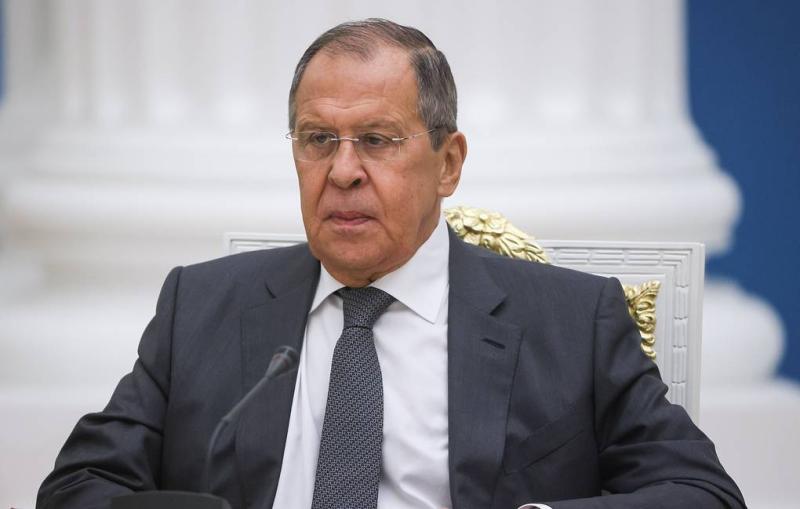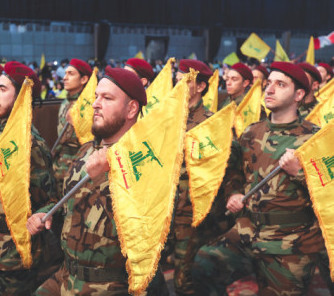
© Mikhail Metzel/POOL/TASS
Top stories from the Russian press on Monday, November 21st , prepared by TASS
Vedomosti: Why the European Parliament is pushing to brand Russia ‘terror state’
At its November 23 session, the European Parliament will consider a motion designating Russia as a "terrorist state." According to the European Parliament's website, this subject will be examined in connection with the intense attacks during Russia's special military operation. Experts interviewed by Vedomosti say the resolution will be merely symbolic and unlikely to result in further sanctions.
According to the draft resolution, the European Parliament urges the European Council and EU member states to consider a similar resolution and take steps to isolate Moscow internationally, including terminating all cooperation with Russia, freezing communication with its representatives, and expelling Russian ambassadors from international organizations and forums such as the G20 and the UN Security Council. Other penalties are in the works, such as the use of frozen Russian public and private assets for Ukraine.
According to Ivan Timofeev, Director of Programs at the Russian International Affairs Council, the declaration will have no impact on sanctions. "The European Parliament's resolution will be political in nature," he told Vedomosti. The EU Council makes decisions on sanctions, and thus far, no fresh restrictions have been proposed, the expert added.
The EU’s sanctions packages have run out of steam, and seemingly now is a good opportunity for this resolution to express concerns about the situation in Ukraine, according to political scientist Alexander Nemtsev.
Adopting such documents is a demonstrative gesture, a call to behave in a certain way in relation to another state, according to Sergey Glandin, a lawyer and partner at the NSP legal firm. The European Parliament's resolution will be used to further stigmatize all those who support Russia. "This is crucial in order to put pressure on those foreign companies that continue to cooperate with Russian business in some form," he stated.
Nezavisimaya Gazeta: Europe faces greater losses from shunning gas than Russia
The European Commission (EC) will present the final draft of its natural gas price cap proposal at the EU summit on Thursday. According to the Russian Academy of Sciences' Institute for Economic Forecasting (IEF), shunning Russian gas will cost Europe between $1 trillion and $1.7 trillion by 2025, which is at least four times higher than Russia’s losses. The balance of losses suggests that the deindustrialization of Europe is an important goal of American policy in the Ukraine crisis, Nezavisimaya Gazeta writes.
In response to the price ceiling, Moscow promised to cut off all gas supplies, which were already severely limited. According to Russian researchers, there are essentially no scenarios in which Europe might prevent a substantial fall in gas use, resulting in economic shocks equivalent to the most recent severe crises.
The European Union intends to lower natural gas use by 15% in 2022-2023 than average volumes over the previous five years, but the impact of this is unknown, head of the IEF's fuel and energy complex forecasting laboratory Valery Semikashev believes. "In 2022-2025, many enterprises may close, and industries such as nitrogen fertilizer manufacturing, aluminum and electric steelmaking, for which natural gas is an undisputed form of fuel and raw material, may become unprofitable," the IEF report says.
According to Nezavisimaya Gazeta, a more positive scenario for Russia would include launching the remaining Nord Stream 2 line and filling TurkStream's second line. However, Russia would continue exports at 70 bln cubic meters, despite the fact that the country provided Europe with over 178 bln cubic meters yearly before the crisis.
Kommersant: Poland blocks Russia from participating in OSCE event
A huge scandal has rattled the Organization for Security and Cooperation in Europe (OSCE). Poland, which currently presides over the organization, has denied Russian Foreign Minister Sergey Lavrov's participation in the Council of Foreign Ministers' upcoming annual meeting. This is the first time in the OSCE's nearly 28-year history that this has occurred, Kommersant writes. Poland justified its decision by citing Lavrov's inclusion on the EU’s sanctions list. Moscow retaliated by accusing Poland of transgressing its chairmanship powers in the organization, discrediting the OSCE and undermining its foundations.
The Russian Foreign Ministry issued a harsh response to Poland for depriving Lavrov of the right to attend the OSCE ministerial meeting. According to Russia, Warsaw's position "is incompatible with the office of chairman of an organization in which 57 sovereign and independent states participate in total equality."
If the Polish authorities wanted Lavrov to attend the ministerial conference in Lodz, European sanctions would not prevent them from doing so, the newspaper writes. However, it appears that Warsaw planned to use the EU restrictions as an excuse to prevent the Russian delegation from attending the OSCE events. This affected more people than Lavrov: earlier, the Polish authorities refused to give visas to Russian legislators planning to join the OSCE Parliamentary Assembly session, which is set for November 24-26 in Warsaw.
Regardless, the story would surely exacerbate the OSCE's severe crisis, which has been ongoing since the end of February, Kommersant writes. The world's largest regional organization, set up to promote security and cooperation in the Euro-Atlantic region, has long been marred by Russia's rising confrontation with the West.
Vedomosti: Turkey unlikely to launch major operation against Syrian Kurds without US approval
The Turkish Air Force launched airstrikes on Kurdish-held territories in northern Syria and Iraq on November 20. The strikes were intended to "neutralize" the Kurdistan Workers' Party (PKK), which Ankara recognizes as a terrorist organization, as well as the Syrian Kurdish People's Defense Units (YPG), whom Ankara considers to be associated with the PKK. The Turkish Defense Ministry took to Twitter saying that the culprits would be held accountable for such treacherous acts, alluding to the November 14 terrorist incident in Istanbul, Vedomosti writes.
According to Amur Gadzhiev, a researcher at the Russian Academy of Sciences' Institute of Oriental Studies, these were targeted strikes, and Turkish warplanes did not fly into Syrian airspace. According to him, the US attitude on another potential Turkish military ground operation has hardened since May-June, when the US strengthened its presence at the base near Kobani.
Gadzhiev told Vedomosti that Washington is opposed to a ground attack against the YPG, which the Americans continue to assist in their own interests. Furthermore, the expert claims that Iran has maintained its hardline stance on the ground operation in Syria. Russia, which warned Erdogan in June, is now more focused on Ukraine, but it does not support Ankara's military endeavors in Syria either, Gadzhiev said.
According to Victor Nadein-Raevskiy, senior researcher at the IMEMO RAS, the latest strikes on Syria may possibly serve as a warm-up for a Turkish ground military operation. According to him, the bombing had been planned for quite some time. If a large-scale operation does not follow, the analyst believes that these actions will be a demonstration of Erdogan's political muscle-flexing before the 2023 election year.
Kommersant: Italy may request exemption from EU embargo on Lukoil refineries
The possibility of shutting down Lukoil's ISAB refinery in Sicily may push the Italian government to ask the EU to delay imposing an embargo on Russian oil supplies for this company. Union protests against the plant's closing took place in Syracuse last week. ISAB will lose oil from Russia if the embargo is imposed, and banks will refuse to finance oil shipments to the Lukoil facility from other countries. The scenario may need emergency steps by the Italian authorities, including nationalization. Experts interviewed by Kommersant believe that postponing the embargo is improbable.
The Italian government is not yet ready to nationalize ISAB. The refinery can also use Middle Eastern oil, but counterparties would refuse to provide funding for alternative supplies, even if Lukoil and its Swiss subsidiary Litasco are not sanctioned.
Experts questioned by Kommersant virtually completely dismiss the prospect of the Lukoil plant being exempted from the embargo. According to Sergey Kondratiev from the Institute of Energy and Finance, the Italian government will find it difficult to get a delay, which might create a precedent for other refineries, such as Lukoil's refinery in Romania. According to the expert, the EU is likely to try to avoid providing specific exemptions, considering that a viable way out of the problem might be the transfer of the facility under state management.
Partner at the A-Pro law firm Ekaterina Makeeva noted that Bulgaria was granted a delay until the end of 2024 in order to create alternate supply channels. Delaying the ISAB ban would necessitate modifications to EU regulation 833/2014, which the expert believes is unlikely given the larger objective of shifting away from Russian oil. Artem Kasumyan, a lawyer at Delcredere, added that the decision for a postponement must be unanimously supported by all EU members, which now appears doubtful.









